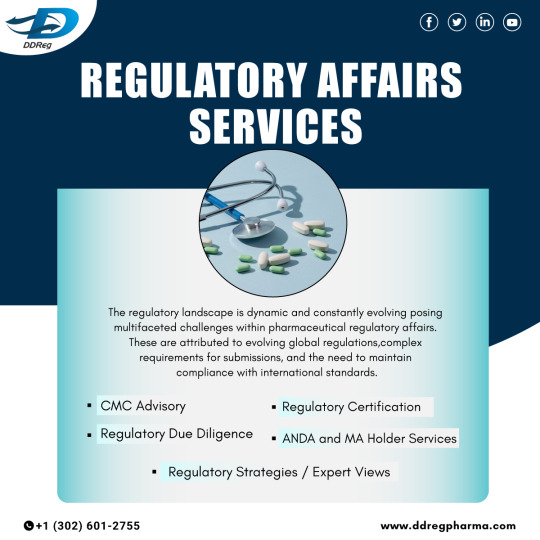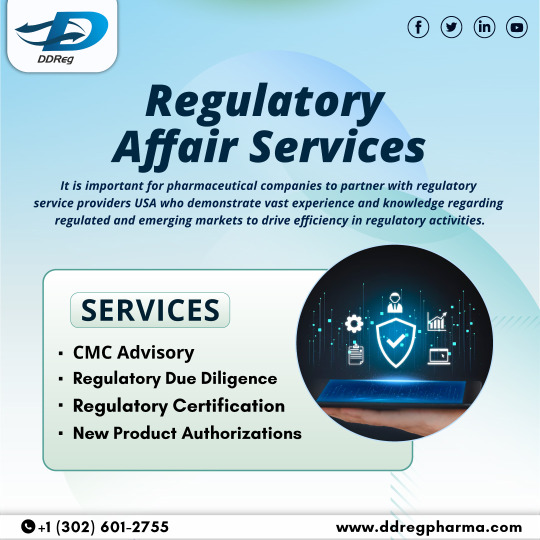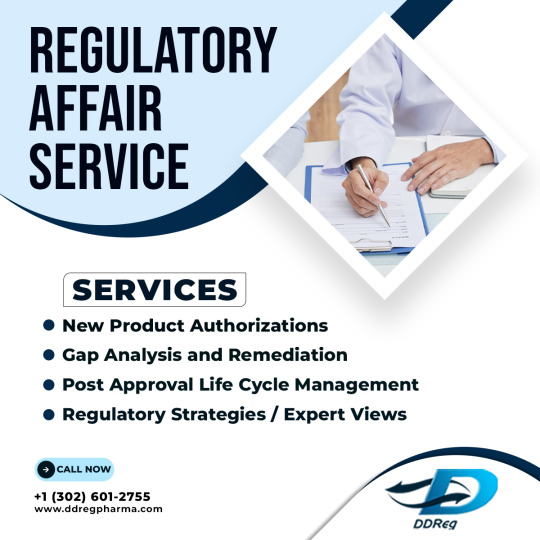#RegulatoryServices
Explore tagged Tumblr posts
Text
Statutory Labour Law Compliance
Statutory Compliance Services in India focus on helping organizations meet regulatory and legal requirements, which include a wide range of laws, rules, and regulations that businesses need to follow. These services typically cover aspects such as labor laws, tax laws, corporate laws, and industry-specific guidelines to ensure compliance and avoid penalties or legal issues.

Here’s a breakdown of key components:
1. Labour Law Compliance
Covers regulations related to employee rights, wages, and working conditions.
Compliance with acts like the Minimum Wages Act, Employee Provident Fund (EPF) Act, Employees’ State Insurance (ESI) Act, and Shops and Establishments Act.
Ensures timely filing of statutory returns, maintaining registers, and addressing statutory contributions.
2. Tax Compliance
Encompasses both direct and indirect tax laws, including Income Tax, Goods and Services Tax (GST), and Professional Tax.
Ensures that businesses file timely returns, pay due taxes, and avail of any applicable credits or exemptions.
3. Corporate Law Compliance
Compliance with the Companies Act, 2013, for businesses incorporated in India.
Includes maintaining statutory records (like statutory registers), filing annual returns with the Registrar of Companies, holding board meetings, and ensuring proper governance practices.
Involves meeting specific regulatory requirements based on business structure (e.g., private limited, public limited, LLP).
4. Environmental, Health, and Safety Compliance
Focuses on the rules related to environmental protection, occupational health, and workplace safety.
Compliance with acts like the Factories Act, 1948, and various environmental laws such as the Air (Prevention and Control of Pollution) Act and Water (Prevention and Control of Pollution) Act.
5. Industry-Specific Compliance
Industries like healthcare, finance, pharmaceuticals, and IT have specialized regulatory requirements.
Compliance services ensure that companies adhere to specific acts and guidelines relevant to their industry, such as RBI guidelines for financial institutions or the IT Act for IT companies.
6. Other Key Compliance Areas
Intellectual Property Compliance: Protects and manages trademarks, patents, and copyrights.
Foreign Exchange Management Compliance (FEMA): Relevant for businesses with foreign investments, cross-border transactions, or overseas offices.
Audit and Reporting Compliance: Ensures regular audits and financial reporting align with regulatory standards.
Statutory Compliance Services offer businesses peace of mind by ensuring full adherence to India's complex regulatory landscape, minimizing the risk of legal repercussions, and allowing businesses to focus on core operations.
#Here are some relevant hashtags:#StatutoryCompliance#ComplianceServices#IndianRegulations#CorporateCompliance#LaborLaw#TaxCompliance#CorporateLaw#EnvironmentalCompliance#IndustryRegulations#HealthAndSafety#LegalCompliance#FEMARegulations#AuditCompliance#RecordKeeping#RegulatoryServices#sankhlacorporate#sankhlaconsultants
4 notes
·
View notes
Text

We now offer regulatory consultancy services in the below areas - ☑ Laboratory GLP compliance verifications ☑Study monitoring services for agrochemical and other speciality / industrial chemicals in the areas of Environmental fate studies, Five batch analysis, Residue studies, Physical chemical property testing, Metabolism studies, Ecotoxicology studies, Efficacy studies for household pesticides ☑Assistance in addressing regulatory queries ☑Assistance in preparing study waiver requests ☑Assistance in preparing QSAR reports Curious to know more? Contact us at [email protected]
0 notes
Text
Medical writing by WorkSure offers regulatory writing to scientific publications, health communication, educational writing, promotional writing, and grant writing
Read more at: https://www.worksure.org/medical-writing-exploring-its-dynamic-and-diverse-dimensions/
medicalwriting #regulatorywriting #scientificwriting #healthcommunication #educationalwriting
0 notes
Text

Discover comprehensive Regulatory Gap Analysis Services designed to identify compliance gaps, mitigate risks, and ensure your organization meets all regulatory requirements. Our expert team provides tailored solutions to help you stay ahead of industry standards and maintain regulatory integrity.
#regulatorygapanalysisaervices#regulatoryservices#regulatoryaffairsservicesprovider#medicaldevice#clinicaltrials#ddregpharma
0 notes
Text

Are you looking for top-notch regulatory compliance service for your business?
Look no further!
At Qwasha Corporate Services LLP, we are proud to offer top-of-the-line Regulatory compliance for Limited Companies and Partnerships. Our team of experienced professionals have a deep understanding of the ever-changing regulations and are well-equipped to develop robust solutions to identify non-compliant areas.
From building comprehensive reports for regulated entities to building compliance frameworks, preparing for routine inspections, and external audits, and advising on corrective actions, we will provide the best solutions to ensure your company stays compliant at all times.
So hurry up! Visit https://qwasha.co.ke/practice-area/regulatory-compliance-for-limited-companies-and-partnerships/ Book a consultation with our expert team and see how we can help your business stay on top of compliance.
#regulatorycompliance#compliancesolutions#businessregulation#corporatecompliance#regulatoryservices#complianceexperts#riskmanagement
0 notes
Text
Don't let regulatory hurdles hold you back. Embrace regulatory excellence and propel your products to new heights.
Contact us today for a consultation and take the first step towards regulatory success! 🌟
#RegulatoryServices#ComplianceMatters#QualityAssurance#GlobalMarketAccess#RegulatoryExcellence#InnovationInRegulation#NavigatingCompliance#HealthcareRegulations#RegulatoryStrategy#ProductApprovals#PostMarketSurveillance#QualityFirst#BusinessCompliance#RegulatoryGuidance#GlobalReach#ClientSuccess#RegulatoryExperts#PartnerWithUs#RegulatoryConsulting#MarketReadiness#RegulatorySupport
1 note
·
View note
Photo

#pharmalytica #officialexhibitionstandcontractor #AnalyticalInstruments #AnalyticalTechnology #Chromatographs #Spectroscopes, #Microscopes #imaging #Analyticalsystems #Instrumentsforphysicalanalysis #chemicalanalysis #HPLC #UHPLCColumns #RegulatoryServices #QualityControl #Measuring #Testing #LaboratoryTechnology #Labequipments #Cleanrooms #LabFurniture #labGlassware #LabChemicals #Consumables #Reagents #Analysers #WaterTechnology #PharmaMachinery #InnovativePharmaceuticalmachinery #pharmaequipment #pharmatechnology #PharmaPackaging #pharmaLabeling #PharmaPackagingmaterials #pharmaconsumables #Packagingmachineries #pharma #pharmatechnology (at Tejaswi Services Pvt Ltd)
#chromatographs#pharmaconsumables#imaging#innovativepharmaceuticalmachinery#spectroscopes#analysers#testing#regulatoryservices#reagents#pharmapackaging#pharmalabeling#analyticalsystems#watertechnology#consumables#qualitycontrol#measuring#instrumentsforphysicalanalysis#pharma#pharmapackagingmaterials#laboratorytechnology#labchemicals#officialexhibitionstandcontractor#pharmalytica#pharmatechnology#microscopes#labequipments#pharmamachinery#hplc#analyticaltechnology#analyticalinstruments
0 notes
Text
Medical Devices Services
DDReg Pharma specializes in comprehensive Medical Devices Services, ensuring regulatory compliance and quality assurance. Our expert team delivers seamless solutions from concept to market, driving innovation and reliability in healthcare technology worldwide."
#regulatoryduediligenceservices#regulatoryaffairs#ddregpharma#regulatoryservices#pharmacovigilanceservices#medicaldevice#clinicaltrials
1 note
·
View note
Text
Understanding Regulatory Services: A Guide for Businesses Operating in the USA

Operating a business in the United States involves navigating various regulatory requirements, which are essential for compliance and sustainable operations. Understanding regulatory services is crucial to ensure that businesses meet legal standards while effectively managing their activities. This guide provides an overview of key regulatory services in USA and their importance for businesses.
What is the Importance of Regulatory Services?
Regulatory services encompass a wide range of governmental activities aimed at overseeing and enforcing laws and regulations. These services ensure that businesses adhere to standards related to safety, quality, environmental impact, consumer protection, and more. Compliance with regulatory requirements not only mitigates legal risks but also enhances trust among consumers and stakeholders.
What are the Types of Regulatory Affairs Services?
1. Business Licensing: Before starting operations, businesses often need to obtain licenses or permits specific to their industry and location. This ensures that they meet local, state, and federal requirements.
2. Environmental Regulations: Businesses must comply with environmental laws to minimize their impact on the environment. This includes obtaining permits for activities that may affect air quality, water resources, or land use.
3. Employment Laws: Regulations governing labor practices, wages, and workplace safety are crucial for businesses. Compliance with these laws ensures fair treatment of employees and avoids legal disputes.
4. Tax Compliance: Businesses must adhere to tax regulations, including filing accurate tax returns and paying taxes on time. Tax compliance is essential to avoid penalties and maintain financial stability.
5. Product Safety and Standards: Regulatory consulting Services sets standards for product safety, quality, and labeling. Businesses must ensure that their products meet these standards to protect consumers and uphold their reputation.
6. Health Regulations: Businesses in sectors like food, healthcare, and pharmaceuticals must comply with health regulations to ensure public safety. This includes hygiene standards, product testing, and disease control measures.
How Businesses Benefit from Regulatory Services
· Legal Compliance: Regulatory affairs services help businesses navigate complex legal requirements, reducing the risk of fines, lawsuits, and operational disruptions.
· Consumer Trust: Adhering to regulations demonstrates a commitment to quality and safety, enhancing consumer trust and loyalty.
· Risk Management: Compliance with environmental, health, and safety regulations minimizes risks associated with accidents, pollution, and public health crises.
· Market Access: Compliance with regulatory standards often opens doors to new markets by meeting international trade requirements and standards.
Challenges and Considerations
While regulatory services are essential, businesses may face challenges such as regulatory complexity, changing laws, and the cost of compliance. It’s crucial for businesses to stay informed about regulatory strategy updates, seek legal guidance when necessary, and integrate compliance into their operational strategies from the outset.
Conclusion
Navigating regulatory services is integral to the success and sustainability of businesses in the USA. By understanding and complying with regulatory requirements, businesses can operate ethically, protect stakeholders, and contribute positively to their communities. Continuous awareness of regulatory changes and proactive compliance efforts are key to thriving in a competitive and regulated business environment.
If you want more details, visit Regulatory Services in Japan and Medical Device Consulting Services.
0 notes
Text
Regulatory Due Diligence Services

Ensure compliance and mitigate risks with our comprehensive regulatory due diligence services. Our experts provide in-depth analysis and strategic insights to navigate complex regulatory frameworks effectively.
#regulatoryduediligenceservices#regulatoryaffairs#ddregpharma#regulatoryservices#pharmacovigilanceservices#medicaldevice#clinicaltrials
0 notes
Text
Expert Insights: Q&A with a Regulatory Certification Services Specialist

Navigating the world of regulatory compliance can be daunting, especially for businesses operating in diverse markets with complex regulations. This is where regulatory certification services come in, offering expert guidance and support to ensure your products and processes meet the necessary standards.
Today, we're bringing you insights from a Regulatory Certification Services Specialist to shed light on this crucial field.
Q: What are some of the most common challenges businesses face when it comes to regulatory compliance?
A: The biggest challenge is often the sheer volume and complexity of regulations. Different markets have varying requirements, and staying updated on changes can be a full-time job. Additionally, interpreting the regulations and applying them to specific products or processes can be challenging, leading to potential non-compliance issues.
Q: How can regulatory certification services help businesses overcome these challenges?
A: Our services provide a comprehensive approach to compliance. We offer:
Expert guidance: We have a deep understanding of various regulations and standards, ensuring you receive accurate and relevant information.
Gap analysis: We assess your current compliance status and identify any areas where your products or processes might not meet the requirements.
Preparation and testing: We assist with preparing the necessary documentation and conducting testing to ensure your products meet the relevant standards.
Certification support: We guide you through the certification process, handling communication with certification bodies and managing the application process.
Q: What are some of the benefits of achieving regulatory certification?
A: Certification offers numerous advantages, including:
Market access: Many markets require specific certifications for products to be sold legally.
Enhanced brand reputation: Certification demonstrates your commitment to quality and safety, boosting customer trust and confidence.
Reduced risk: Compliance minimizes the risk of legal penalties, product recalls, and reputational damage.
Improved operational efficiency: Streamlined processes and clear compliance procedures can lead to greater efficiency and cost savings.
Q: What advice would you give to businesses considering regulatory certification services?
A: Don't wait until you face compliance issues. Proactive engagement with regulatory certification services can save you time, money, and potential headaches down the line. Choose a service provider with a strong track record and expertise in your industry and specific regulatory affairs services requirements.
By working with a trusted regulatory certification services provider, businesses can navigate the complexities of compliance with confidence and achieve their goals in a safe and efficient manner.
#regulatoryaffairs#ddregpharma#regulatoryservices#pharmacovigilanceservices#medicaldevice#clinicaltrials
0 notes
Text
Pharma Regulatory Services in Philippines
Explore comprehensive regulatory services in the Philippines, ensuring your business complies with local laws and regulations. Our expert team provides guidance on permits, licenses, compliance audits, and industry-specific requirements. Streamline your operations and avoid legal pitfalls with our tailored solutions, helping your business thrive in the Philippine market. Trusted, efficient, and reliable support for all your regulatory needs. Related services: Medical device consulting, Regulatory solution, Pharmacovigilance services, and clinical trials.
#regulatoryservicesinphilippines#regulatoryservices#regulatoryaffairsservicesprovider#medicaldevice#clinicaltrials#ddregpharma
0 notes
Text
Regulatory Services in Morocco
Explore Morocco's business opportunities with confidence through our tailored regulatory services. From compliance to market analysis, we offer the insights and support you need to succeed in Morocco's unique economic environment.
0 notes
Text

Regulatory Services in Australia: Services tailored to the Australian market, helping businesses comply with the Therapeutic Goods Administration (TGA) for health-related products, as well as Australian Standards for a wide range of industries, ensuring product safety, quality, and regulatory compliance.
0 notes
Text

Regulatory Affairs Services Provider: Expert firms offering comprehensive support and guidance on navigating the complex regulatory landscapes. These providers specialize in ensuring that products and services meet all required regulatory standards and approvals, essential for businesses aiming to introduce their offerings in regulated industries such as pharmaceuticals, healthcare, and biotechnology.
0 notes
Text

Regulatory Services in USA - The USA offers comprehensive regulatory services across various industries, including pharmaceuticals, finance, and technology. These services ensure businesses comply with federal and state regulations, aiding in licensing, compliance audits, and regulatory submissions.
0 notes